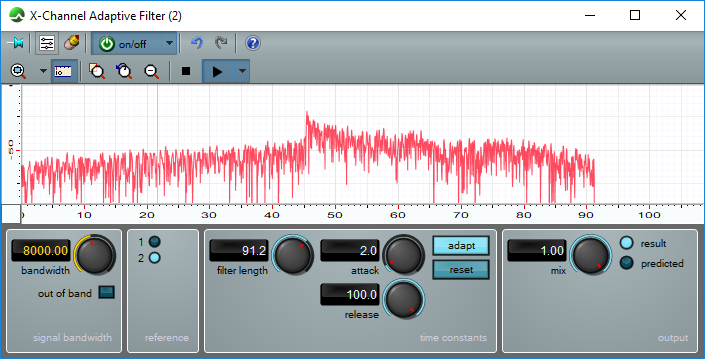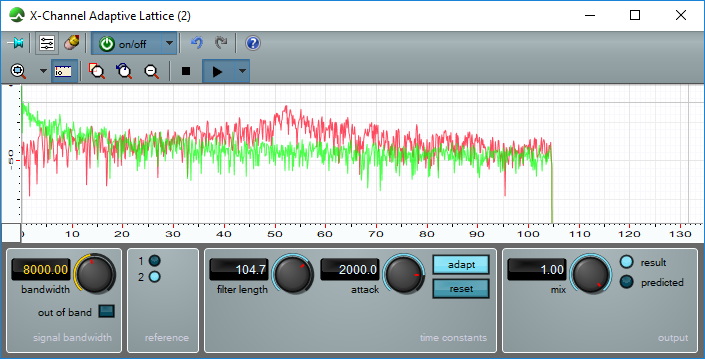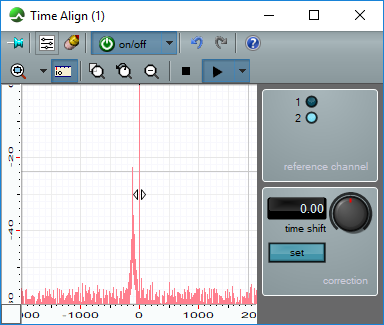Cross-Channel Adaptive Filters
Cross-channel adaptive filters allow users to remove interfering signals such as radio broadcasts and television programmes from contaminated audio. However, unlike other such systems, CEDAR Cambridge offers up to eight simultaneous audio channels, allowing you to use the reference signal to clean up to seven other signals.
Adaptive Filter

All the controls of the single-channel Adaptive Filter are provided, so you can optimise the noise cancellation for each job. Using the Cross-Channel Adaptive Filter, you can eliminate the masking effects of televisions, radio broadcasts and other measures used to obscure conversations.
Lattice Filter

The most powerful of CEDAR's adaptive filters, the Cross-Channel Lattice Filter achieves remarkable results, and can make voices clearly audible and intelligible even when they are barely apparent in the original audio.
Time Align

When using multi-channel adaptive noise cancellation, it is important that the reference channel and any surveillance channels are correctly aligned. If they are not, you will be unable to extract the speech with optimal intelligibility. The Time Align module provides precise visual feedback about the relationship between the reference and surveillance signals, and allows you to align them with an accuracy of 1ms.